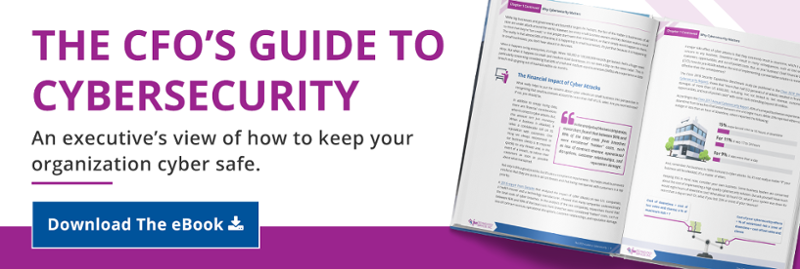As the COVID-19 vaccine distribution has now begun, government officials expect scams to emerge. Watch out for everything from phony treatments to phishing messages. Reuters is reporting that scammers are offering vaccine shots for as low as $150, on apps and through email. Government officials have already been cracking down on phony COVID testing kits and treatments. And just when we thought it couldn't get any worse, now they're ramping up efforts to prevent the sale of fake vaccines.
Selling fake vaccines and other treatments is likely only one of many ways scammers will try to cash in on the vaccine release. Watch out for phishing messages attempting to trick you into sharing your passwords and personal information. Con artists have already impersonated the Centers for Disease Control and Prevention (CDC) and the World Health Organization (WHO) in phishing emails that claim to have news about the disease. BBB has also seen an increase in scams using robocalls to impersonate government officials.
How to Spot a Coronavirus Vaccine Con
- Research carefully: Scammers are very creative, so be skeptical of anything that seems too good – or crazy – to be true. Double check any information about the vaccine with official news sources. And be aware that none of the vaccines can be currently purchased online or in stores. Watch for emails claiming to be from the Centers for Disease Control and Prevention (CDC) or experts saying that have information about the virus. For the most up-to-date information about the Coronavirus, visit the Centers for Disease Control and Prevention (CDC) and the World Health Organization (WHO).
- Ignore calls for immediate action. While you may want to be first in line for the vaccine, don’t let that sense of urgency cloud your judgment. Scammers try to get you to act before you think. Don't fall for it.
- Think the link may be real? Double check the URL. Scammers often buy official-looking URLs to use in their cons. Be careful that the link is really what it pretends to be. If the message alleges to come from the local government, make sure the URL ends in .gov (for the United States) or .ca (for Canada). When in doubt, perform a separate internet search for the website. Don’t click on links from sources you don’t know. It could download a virus onto your computer or device. Make sure the anti-malware and anti-virus software on your computer is up to date.
- Check with your doctor: If you want a vaccine early, reach out to your healthcare provider about your options. If you don't have a primary care physician, check out the official website of your local health department for more information
- Do your homework: When it comes to donations, whether through charities or crowdfunding sites, don’t let anyone rush you into making a donation. If someone wants donations in cash, by gift card, or by wiring money, don’t do it.
- Be alert to “investment opportunities”: The U.S. Securities and Exchange Commission (SEC) is warning people about online promotions, including on social media, claiming that the products or services of publicly-traded companies can prevent, detect, or cure coronavirus and that the stock of these companies will dramatically increase in value as a result.
How to avoid clinical trial scams
- Look up the domain: Use lookup.icann.org to look up the URL. Look for warning signs such as a very recent registration date or registration in a foreign country.
- Think the trial is real? Find it on the official website: If you receive a message about a study and want to confirm whether it’s true, go directly to (or do a web search for) the organization’s website for further information. The National Institutes of Health (NIH) and the National Library of Medicine (NLM) also maintain ClinicalTrials.gov, a free searchable database of clinical studies on a wide range of diseases. If there is no government agency, university, or hospital mentioned, it’s likely a scam.
- Never pay to be part of a clinical trial: Real clinical trials will never ask you to pay them.
- Legitimate clinical trials do gather information about candidates – but not financial information: To screen for participants, a real study might ask for your name, contact information, age, gender, race, ethnicity, or various pre-existing medical conditions. But, they should never ask you for information like your bank account details.
operation stolen promise 2.0
U.S. Immigration and Customs Enforcement (ICE) Homeland Security Investigations (HSI) launched Operation Stolen Promise (OSP) in April 2020 to protect the Homeland from the increasing and evolving threat posed by COVID-19-related fraud and criminal activity.
In the coming months, HSI anticipates that high public demand for access to vaccines and treatments will lead to illegal attempts to introduce counterfeit versions of these items into U.S. and global marketplaces. In response, HSI has initiated Operation Stolen Promise 2.0, which expands the focus of OSP to address this emerging public health threat.
As the pandemic persists, we need to remain vigilant and know how to recognize and report potential COVID-19 fraud. HSI has initiated the S.T.O.P. COVID-19 Fraud campaign to provide facts, tips, and red flags on pandemic related crime and to guide the public on how to recognize potential fraud, protect themselves from it, and report it to authorities.
What do you think? Have you run across any similar scams yet? Let us know your thoughts or experiences in the Comment box below or shoot me an email if you’d like to chat about this in more detail.
/fpa-logo-tagline.gif)







